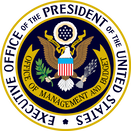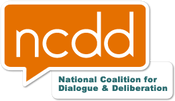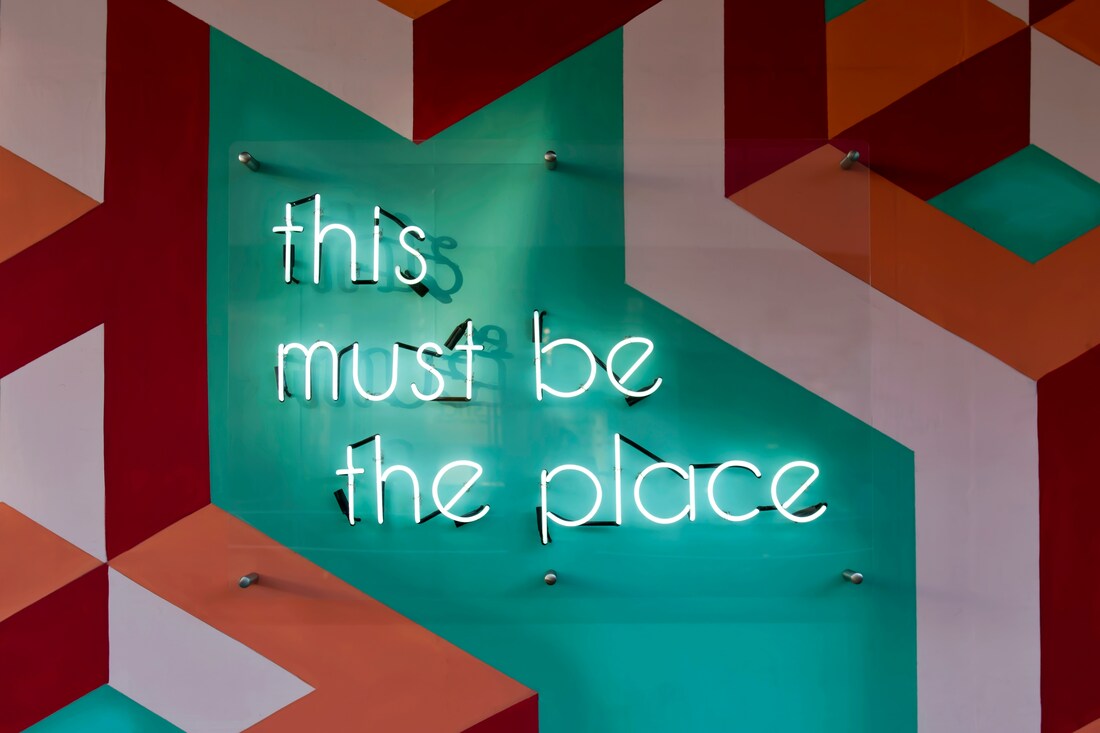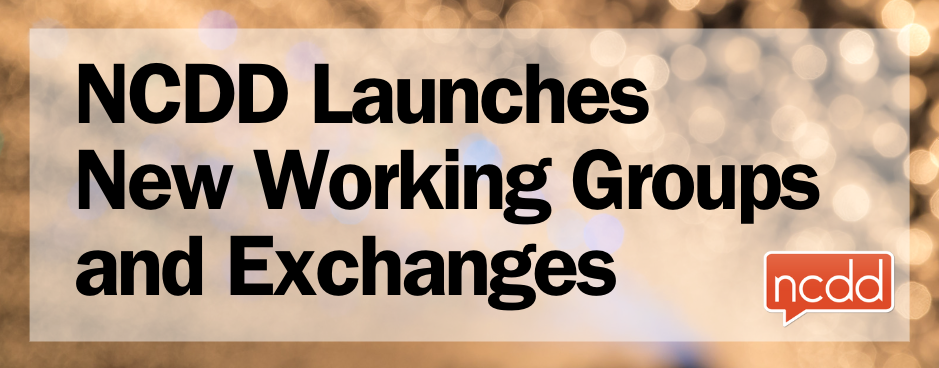|
Join us today for the Practitioner Mobilization for Democracy launch event, "The Role of Mediators and Facilitators in Healing U.S. Democracy," at 9am PT/12pm ET. Co-hosted by NCDD and various partners, this event unites practitioners in support of democracy during a time of significant societal divisions. Learn more below and register here.
In addition to this, we have news on the recent NCDD leadership change. At the beginning of June, Keiva Hummel stepped into the role of Executive Director. She has already launched new initiatives to strengthen and expand NCDD's impact, such as the Practitioner Mobilization for Democracy. In the spirit of continuing to build NCDD into a robust organization, we are dedicated to strengthening our capacity and network. We invite all our members, partners, and the wider community to join us in these efforts. Your financial contributions and support are vital to advancing our mission of promoting dialogue, deliberation, and civic engagement. Learn more details in the blog post below.
0 Comments
Commemorating Juneteenth: Celebrating Freedom with Enriching Cultural and Educational Resources6/19/2024  Juneteenth, also known as Freedom Day, marks our country’s second independence day and is celebrated annually on June 19 to commemorate the emancipation of enslaved Black people in America. This important day in American history is marked with parades, prayer, dancing, and family gatherings. The Smithsonian's National Museum of African American History & Culture and Teach for America offer a rich compilation of resources, including lesson plans, books, videos, and classroom guides, to enrich conversations around this significant day. We invite you to share any dialogue and deliberation resources in the comments below. We are thrilled to announce a fantastic addition to our NCDD team. Please join us in welcoming Izzy, who will be joining us as our new Communications Coordinator! Izzy is an energetic and compassionate leader, dedicated to fostering effective communication and building meaningful relationships within her community and professional circles. A recent graduate from Colorado State University, Izzy worked for the last two years at CSU's Center for Public Deliberation with former NCDD board chair Martin Carcasson. She is an inspiring leader who you may remember as a speaker from the NCDD2023 conference panel: Emerging Leaders on Our Collective Future Momentum. Please join us in wishing her congratulations! Learn more about Izzy and her new role in the blog post below.
 Calling all practitioners of dialogue facilitation, community mediation, collaborative communication, and conflict transformation - You are invited to the Practitioner Mobilization for Democracy! Co-created by several partners, including: NCDD, NAFCM - The National Association for Community Mediation, Omni-Win Project, The Karuna Center for Mindful Engagement, and more. The Practitioner Mobilization for Democracy Campaign aims to unite mediators and facilitators in support of the future of democracy. Through networking events, monthly forums, and resources, this mobilization aims to inspire, equip, and mobilize practitioners to make a difference locally and nationally. Join the launch event on July 1st at 9am Pacific, 12pm Eastern, to learn about this Practitioner Mobilization and how you can further leverage your skills in facilitation and mediation for democracy. The campaign welcomes practitioners, both experienced and those newer to this work, to join us in creating a vibrant and inclusive democratic landscape. Learn more in the blog post below and on the Practitioner Mobilization for Democracy info page here.  We are thrilled to announce a leadership transition at NCDD. After five years of dedicated service, Courtney Breese will step down as NCDD's Executive Director to become the Director of Community Mediation Programs at the Massachusetts Office of Public Collaboration. Keiva Hummel, who has been with NCDD for nearly a decade, will take over as the new Executive Director starting next week. In the coming months, our focus will be on strengthening our coalition, growing the membership, and securing major funding to ensure NCDD's continued growth and success. We are grateful to share that Courtney will continue to work with NCDD on ongoing projects and to ensure this smooth transition. Please read our full announcement in the blog post below!  Thank you to everyone who participated and provided feedback on NCDD's response to the White House Office of Management and Budget's (OMB) recent Request for Information on developing a Federal framework for Public Participation and Community Engagement (PPCE). The final response, reflecting input from our coalition, is now available on the Federal government's site. Additionally, several NCDD members submitted their own comments, which are linked in the blog post below. TODAY - May 29th from 1-3 PM Eastern, will be a virtual event hosted by The Open Government Secretariat titled "Strengthening Democracy and Improving Our Communities Across All Levels of Government: The United States Experience". This session will explore open government approaches and their impact on democracy and communities across the United States. Learn more in the post and register to join here. OMB Input Request for Public Participation and Community Engagement Best Practices; Due 5/174/22/2024  The White House Office of Management and Budget (OMB) is soliciting input from the public on best practices for public participation and community engagement (PPCE) activities, aiming to make government interactions more inclusive, transparent, and accountable. Americans are encouraged to share their experiences, suggest content for a federal framework, propose ways to improve the process, and provide feedback through public comments, online forms, or attending virtual listening sessions by May 17th. The initiative seeks to enhance government consultations with the public to inform policies, regulations, and services, addressing concerns about accessibility and stakeholder engagement. NCDD is working on generating a response and we will follow up with our network in the near future. Learn more in the post below and on GSA's site here. We are excited to announce the new NCDD Job & Internship Board!
Our job and internship board connects individuals and organizations committed to driving positive change through meaningful conversations and collaboration. Whether you're a seasoned practitioner or a newcomer to the field, our job and internship board offers a wide array of opportunities tailored to your skills and interests.
We'll share new positions via the Job-Internship Board regularly, so make sure you bookmark the page and check back when you're looking for new opportunities. You'll notice at the top of the NCDD site, under the "News" tab, there is link to the new "NCDD Job-Internship Board". Jump to the NCDD Job & Internship Board here: www.ncdd.org/dd-jobs-internship-board. The Making A Living List (D&D Jobs List) will still remain active and we encourage members to continue sharing job/internships in that space if that is your preference. Opportunities shared on the Jobs list will be reshared on the Jobs Board to help further boost announcements in a public-facing place on the NCDD site for easier access.  At the beginning of 2024, NCDD began to roll out our new media collaborative working group and higher education exchange. In April, we are launching two new working groups - Fundraising and Philanthropy & Emerging Leaders (people 35 and under)! We are looking to schedule the calls for those groups and convene this month. If you are interested in joining either of the new working groups, please fill out the scheduling polls linked below. If you are interested in joining the two other groups - Media Collaborative and or Higher Education - find the call information below and join us on the next call! Fundraising and Philanthropy: Join this working group to explore opportunities for fundraising for NCDD and beyond.
Emerging Leaders: This group is for people 35 years and under to explore ways that the NCDD network can support and lift-up our new and emerging practitioners.
Media Collaborative: Join this working group to collaborate on strengthening the connection between D&D and journalism.
Higher Education Exchange:
Have you heard the news?! NCDD is thrilled to announce the launch of our NCDD Working Groups and Exchanges - and you're invited to join!
2024 is already looking to be an important year and there is a lot of energy for dialogue, deliberation, and engagement work. NCDD is uniquely positioned to bring together our collective wisdom, experiences, and passion for change to reflect and collaborate together. Coming out of the 2023 conference, NCDD is excited to be harnessing the collective energy and capacity of this coalition through the formation of working groups that align with key priority areas for the organization, as well as exchanges that will allow the membership to deepen connections. These groups are intended to provide our members with focused opportunities to connect, collaborate, build capacity, and invest in our shared coalition. Current NCDD Working Groups A number of potential focus areas were suggested at the 2023 conference. The NCDD staff and board have determined that these following groups are best aligned with current organization priorities and can also play a key role in building and sustaining NCDD as an inclusive coalition and a thriving organization.
Joining a Working Group Working groups open to all, please fill out this form. While you are not required to be an NCDD member, your support helps make these groups possible - become one today! Current NCDD Exchanges
Joining the Exchange Express your interest in this exchange by filling out this brief form. The form asks for ways you would like to communicate around the exchange, as well as opportunities to present and lead the group. Want to Start a New Exchange? NCDD is excited to support additional exchanges focused on bringing our network together around specific sectors, areas of interest, etc. If you would like to discuss starting a new exchange, reach out to NCDD’s Executive Director, Courtney Breese, at [email protected]. Additional Questions? Please contact NCDD’s Communications Coordinator, Keiva Hummel, at [email protected]. |
Categories
All
|
Follow Us
ABOUT NCDD
NCDD is a community and coalition of individuals and organizations who bring people together to discuss, decide and collaborate on today's toughest issues.
© The National Coalition For Dialogue And Deliberation, Inc. All rights reserved.
© The National Coalition For Dialogue And Deliberation, Inc. All rights reserved.




 RSS Feed
RSS Feed